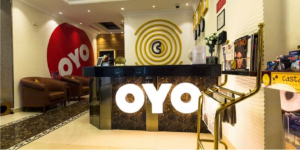Imagine starting a new job and hearing your manager proudly say, “We’re like a family here.” It sounds warm, inviting, and comforting. But while this sentiment is well-meaning, it may not be the most effective way to frame a business environment. The “family” metaphor is appealing because it promises loyalty, unconditional support, and unity. However, it also implies blurred boundaries, potentially toxic relationships, and unbalanced expectations.
In the realm of business, where clarity, structure, and professionalism are paramount, treating your company as a ‘family’ may set you up for challenges that undermine both productivity and well-being.
The origins of the ‘family’ mentality
The idea of the workplace as a family emerged from a desire to foster camaraderie and trust among employees. Companies wanted to create spaces where people felt safe and motivated, boosting morale and retention. While intentions may have been noble, the execution often leads to problematic outcomes.
Why the ‘family’ mentality falls short
Blurred boundaries and unrealistic expectations
Families are typically associated with unconditional support. However, in a business setting, this mindset can lead to unrealistic expectations where employees feel pressured to go above and beyond their professional scope. This often leads to burnout, as employees may struggle to say no or set boundaries out of fear of disappointing their ‘family.’
Difficulty in addressing underperformance
In a true family, love and loyalty often override consequences for poor behaviour. In a business, however, the stakes are different. Maintaining a ‘family’ mindset can make it difficult for leaders to objectively address underperformance or make tough decisions like layoffs. This approach can create a culture where mediocrity is tolerated, affecting overall productivity and efficiency.
Favouritism and unbalanced treatment
Family-like dynamics can also lead to favouritism or perceptions of unequal treatment, fostering resentment among team members. In a business context, it’s vital to maintain fairness and transparency. The ‘family’ approach may compromise this, as leaders might subconsciously favour those they feel closer to, creating division and tension among teams.
Toxic relationships and emotional burden
Families can have complex, sometimes toxic, dynamics that don’t translate well into professional settings. The ‘like a family’ mantra can encourage employees to bear the emotional weight of their coworkers’ problems or poor behaviour. This added emotional labour is unsustainable and distracts from the primary focus of achieving shared business goals.
Resistance to change
Families tend to value tradition and continuity, sometimes at the expense of adaptability. For a company, clinging to the ‘family’ ideology can hinder innovation and growth. Businesses need to be dynamic, and capable of making strategic shifts without being tied down by the emotional attachments that come with a familial mindset.
What companies should aspire to instead?
Instead of aiming to be ‘like a family,’ companies should adopt a framework that prioritises clear roles, responsibilities, and support structures that respect personal and professional boundaries. Here’s what companies can aim for:
- A supportive community: Unlike a family, a community is built on mutual interests and goals, with a shared sense of purpose but clear boundaries.
- A high-performing team: Teams are focused on collaboration and mutual accountability, maintaining professionalism while fostering trust.
- An empowering culture: Cultivate an environment that encourages personal growth and collective success without imposing unrealistic emotional burdens.
While it’s tempting for companies to aspire to be ‘like a family’ for the sake of unity and morale, it often comes at the cost of professionalism, clear boundaries, and effective leadership. Instead, organisations should strive for a balanced culture that upholds mutual respect, accountability, and a shared vision. The key to long-term success lies in creating a work environment that empowers individuals while maintaining clear lines between the personal and the professional.


![Read more about the article [Startup Bharat] This Assam-based travel-tech startup is promoting Northeast tourism and creating jobs](https://blog.digitalsevaa.com/wp-content/uploads/2022/04/CopyofImageTaggingNewBrandingEditorialTeamMaster4-1650361549642-300x150.jpg)
![Read more about the article [Funding alert] Global brand for educational games Skillmatics raises $16M in Series B led by Sofina](https://blog.digitalsevaa.com/wp-content/uploads/2022/05/skillmatics-1652161131842-300x150.png)






